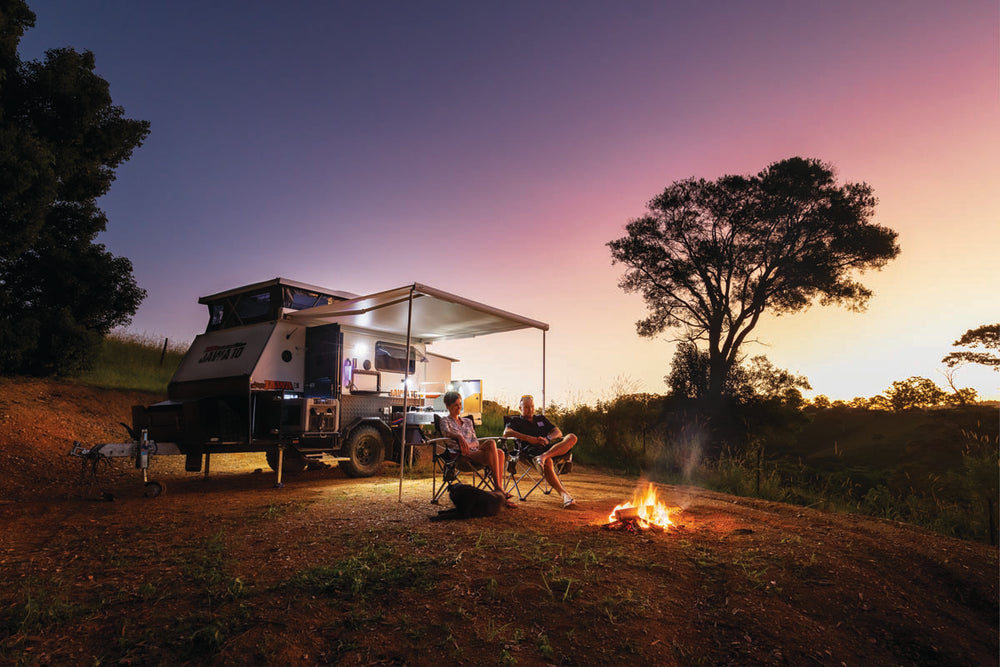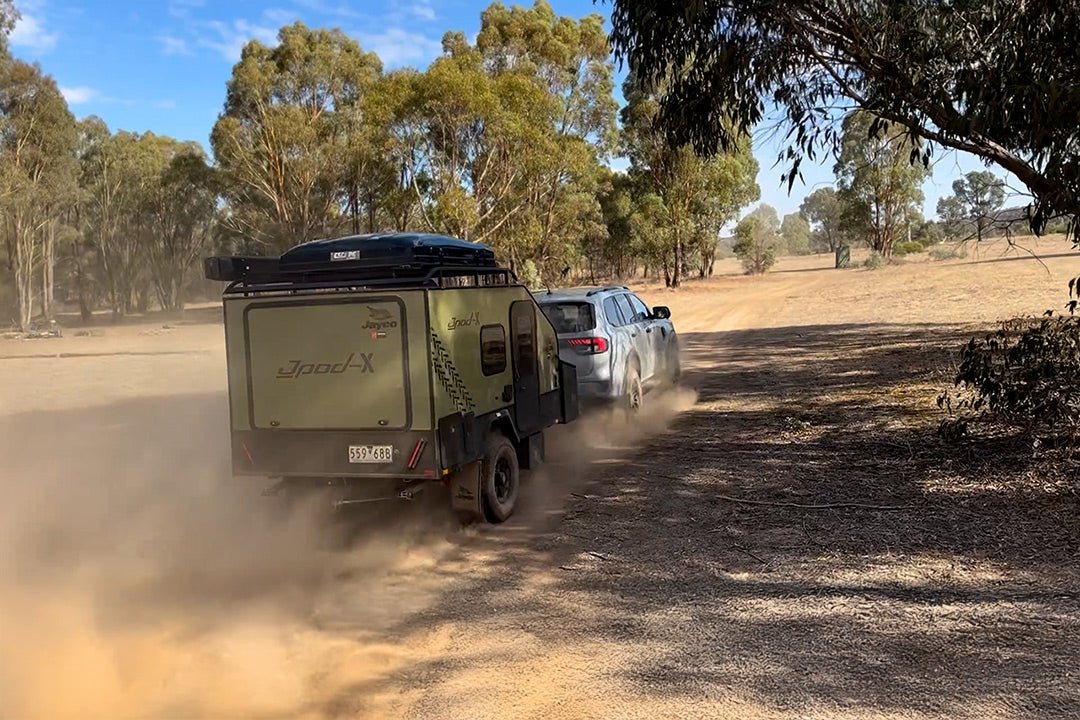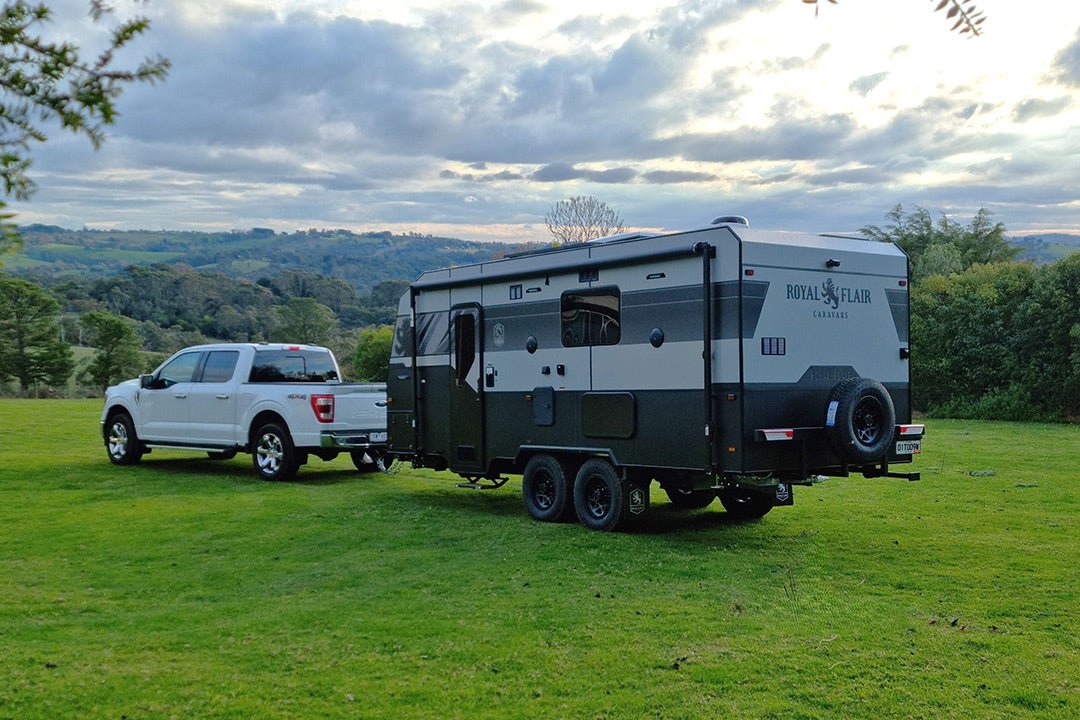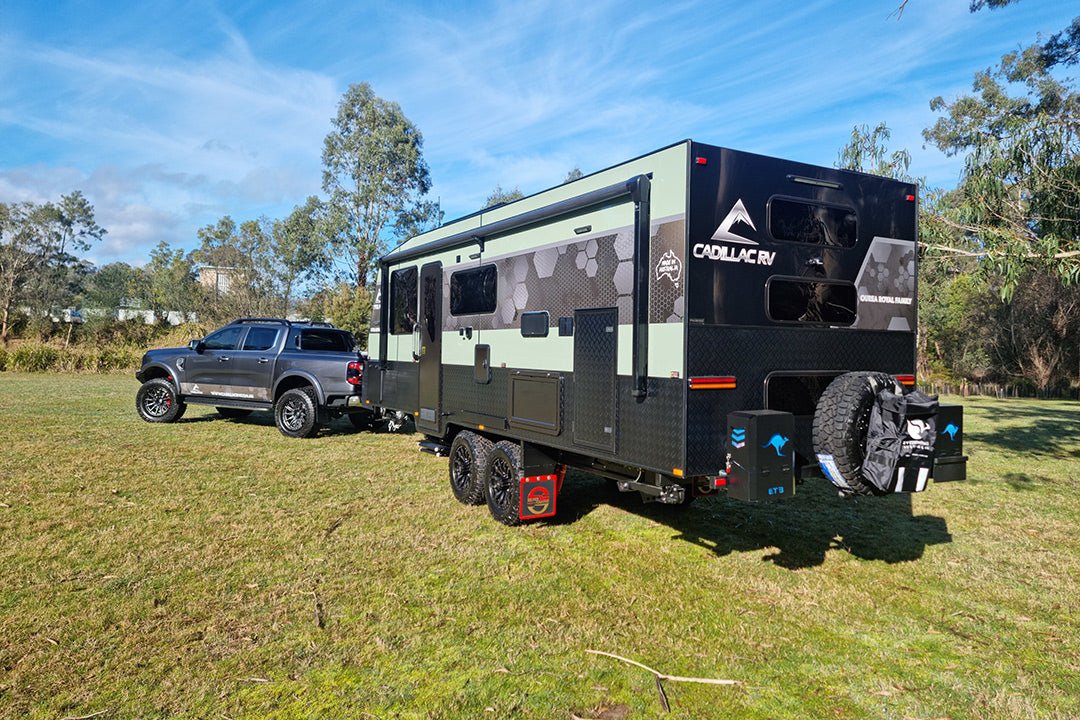Grazing the Granite Belt
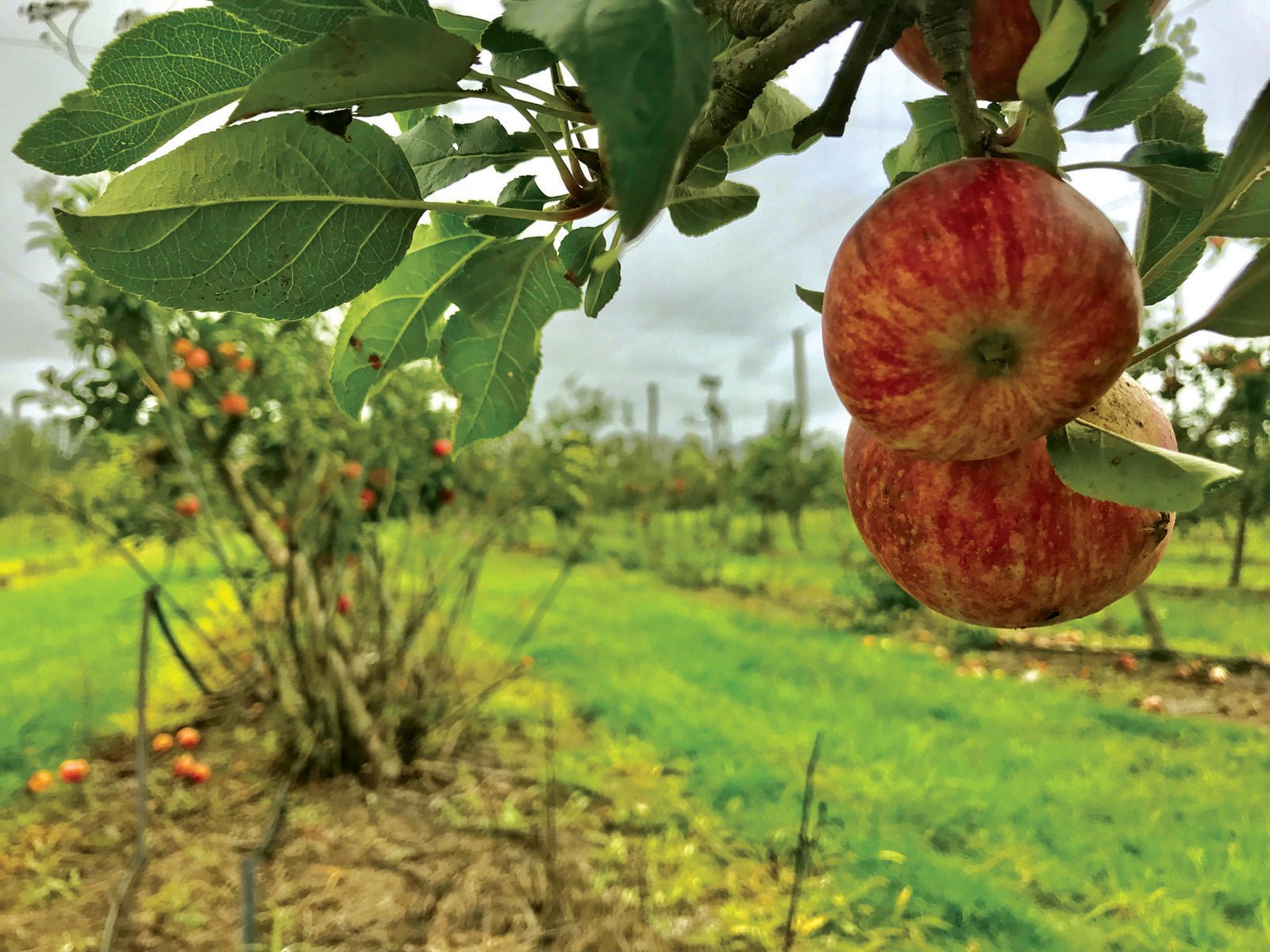
Who knew spending time in picturesque regional Queensland could bring so much joy? Well, the people of Stanthorpe in the Granite Belt did. Who knew eating fresh produce, tasting wines, kicking back with a beer, enjoying country hospitality, celebrating festivals and shopping for local artisan products could mean so much? Again, the people of Stanthorpe.
Stanthorpe is the centre of a regional tourist hub, about 2.5 hours south-west of Brisbane, famous for its apple and grape production and 35 wineries with cellar doors. Well, it was a hub until mother nature struck a devastating two-pronged blow. First the drought hit and stayed for three years, sucking the life out of the region.
“Some growers will not get a crop this year — again,” says local Allan Foster, who runs Granite Highlands Maxi Tours. “Some rolled the dice, planted a crop, carted water, still to fail. Graziers have had to cut stock because they can’t afford to feed them, and it will take years to rebuild those numbers.”
Then bushfires struck last September and pulled the rug out from the tourism industry that was keeping the Belt alive. For some operators, business is down by 90 per cent since the fires.
“Even those parts not burnt are suffering because of the perception that the whole of the Granite Belt was hit or is unsafe to travel in,” says Allan. “People are not coming. As soon as they heard about the fires, they cancelled holidays. Accommodation has been left empty, even kilometres from where the fires hit.”
However, just like the bedrock that made this region famous, Granite Belt operators are made of tough stuff and are fighting back with every bit of enthusiasm they can muster. It helps now that the rains have started. In fact, it’s hard to imagine that just a short while ago, the ground was bare and brown. Now the rolling hills are green and lush, but the dams remain empty.
A few months ago, I parked the motorhome for a few days and hopped on a tour with Allan to see the highlights and get an insight into what the locals have faced and how they are dealing with it, as we ate, drank and shopped our way around the Granite Belt.
SUTTON’S JUICE FACTORY
It seems appropriate that our first stop in a region famous for its apples is Sutton’s — an apple juice and cider factory also famous for apple pies. These are the biggest apple pies I have ever seen. 25 apples go into each 2.5kg hand-made mound of baked deliciousness with sugar, lemon juice, cinnamon, and a layer of apricot jam on the base to seal the pastry. You can have a slice with cream and ice cream in the shed cafe or take one home for $65.
Owners, Dave and Ros Sutton, switched from wheat farming to fishing then bought the apple orchard and cafe 11 years ago. They also grow quinces for paste and jelly, limes, lemons, figs, melons and stone fruit like apricots and peaches, and make an assortment of jams, juices, relishes, chutney, sauces, ciders and liqueurs.
Where: Halloran Drive, Thulimbah (opposite the Big Apple, which is now closed)
Web: suttonsfarm.com.au
QUEENSLAND COLLEGE OF WINE TOURISM VARIAS RESTAURANT
Stanthorpe has the only school in the Southern Hemisphere where they grow, crush and serve grapes from their own property — and the college provides the training to make that all happen. It is the conduit between the school and wine tourism industry.
Visitors can take a tour of the facility ending in a wine tasting or a cooking demonstration where you eat the finished product. A highlight, though, is the daily lunch or dinner Friday and Saturday at the college restaurant, Varias, showcasing local produce.
Where: 22 Caves Road, Stanthorpe
Web: qcwt.com.au
ASHBERN (STRAWBERRY) FARM
The biggest strawberry ever picked at Brendan Hoyle’s Ashbern Farm is 180g. The best I could manage while picking our own strawberries was 45g — still a whopper, but a long way from the record. Strawberry picking is a huge hit with visitors to the 10ha Granite Belt farm when they come. The drought has caused hardship and keeping 550,000 plants alive and still producing fruit is a day-by-day proposition.
“Then the fires hit,” Brendan says, “and no one came for six weeks. We still get calls asking if it’s safe to visit. Recent rains have been life-changing. People are coming back to pick strawberries or just to stop in the cafe and try our ice cream.”
Where: 2 West Road, Stanthorpe
Web: ashbernfarms.com.au
JAMWORKS GOURMET FOODS & LARDER
"Try before you buy" is one of my favourite mantras and Jamworks is the perfect place to put that into practice. Producers of artisan preserves, they have more than 100 gourmet jams, relishes, chutneys, sauces and pastes made from local Granite Belt produce, and you can taste before you buy. They also serve light meals and great coffee.
While you’re here, duck next door to Anna’s Candles and make sure to ask how they came up with the ‘Monkey Farts’ scent.
Where: 7 Townsend Road, Glen Aplin
Web: jamworks.com.au
RIDGEMILL ESTATE
One of 35 Granite Belt cellar doors, Martin Cooper and Michelle Feenan’s Ridgemill Estate is also on the Strangebirds Wine Trail, so named for its alternative varieties like Saperavi, a grape from Georgia in northern Europe that dates back 8000 years.
Come in for a taste and chat with wine maker Peter McGlashan who will tell you all about its red flesh and “exotic spice, dark choc, mulberry and plum flavours”. So much is on offer here — wine tastings, vineyard tours, picnic lunches and luxury accommodation in eight swanky, modern cabins.
Where: 218 Donges Road, Severnlea
Web: ridgemillestate.com
ESSEN RESTAURANT
The name is German/Austrian for ‘to eat’ and everything they serve is locally grown or produced. This quaint restaurant sits in the former hospital op shop. Now decked out in Austrian glory, the menu matches the country family feel with pork schnitzels and tender steak the highlights.
Where: 2 McGregor Terrace, Stanthorpe
Web: essenstanthorpe.com.au
BALLANDEAN PYRAMID
Yes, you read that correctly, a pyramid. This man-made stone pyramid near Ballandean is 17.5m tall, 30m wide and built from blocks of local granite. It sits on private property on Henty Estate, about 25m from the nearest road.
Why? The story goes that the granite needed to be moved, someone suggested a pyramid and, voila, $250,000 later, here it is. Now it is also used for annual Anzac Day services.
Where: Lot 2 Jacobsens Rd, Ballandean
WASHPOOL SKIN WELLNESS
Grab the goggles and get in a lather over making natural soap with Washpool owner Melissa Thomas. There are so many lessons to be learnt about what should and should not be put into body cleansers and moisturisers.
Her business started with the need to overcome her children’s sensitive scalps and Melissa’s passion to use natural ingredients to do that. She now sells dozens of products and runs soap-making classes for visitors from all over the country. For $220, the full-day classes are catered, and you’ll take home 2kg of soap and a soap-making book. The Washpool story is another example of how local operators are getting by despite the drought. What began as a side hustle is now the major money earner for the Thomas family.
“Despite it looking green out there now, we are still in drought,” Melissa says. “We haven’t mowed the lawn in more than two years… Wine tourism normally brings people to town and then they come and visit while here. But drought has reduced the number of tourists and our business is almost all online now.”
Where: 16 Bents Road, Ballandean
Web: washpool.com.au
ST JUDE’S CELLAR DOOR & BISTRO
The Granite Belt’s newest cafe and cellar door experience is the winner (for me) of our tour’s ‘best food’ gong (and it’s open for breakfast, lunch and dinner). Owner, Robert Davidson, has defied the odds, surviving the drought as a cafe and cellar door for Sirromet Wines. He uses only local produce; mushrooms, figs and beans (whatever is in season) from farms up the road. And he has plans to expand, introducing his own wines to the cellar door under the 4382 Terroir label.
“It’s hard to describe how bad the drought has been when we are now surrounded by greenery,” Robert says. “But it has been tough. Many vineyards — including St Jude's — chopped their crops off and let them rot.
“This is an industry that employed up to 2000 people each season but almost all lost their jobs. The ongoing effect is that we lost huge business in missing sales like coffee, toasties, beer, wine.
“Then the fires… not only did people stop coming, we’ve had lots of volunteers away fighting other people’s fires.”
Until the rain, Robert says, people were hanging their heads. Now there is hope and they can plan for 2021. If you drop in and the three black genoa figs with mascarpone and crisp prosciutto is on the menu, don’t miss it.
Where: 4382 New England Hwy, Ballandean
Web: stjudesballandean.com
GRANITE BELT BREWERY
Bushfires licked Dee and Geoff’s brewery and wildlife property in September but did not get past the front fence.
“If there’s one place we’re going to make sure is okay, it’s the brewery,” volunteer firefighters joked with them.
The brewery, restaurant and 20 cabins escaped the flames, but the couple has not been so lucky with the tourist backlash. People cancelled holidays in droves, and they lost 90 per cent of their business. But they are battling on and are ready to welcome more visitors.
Come for Geoff’s hand-crafted ales and lagers, the beer and bratwurst specials and live music, and stay for the wildlife and wilderness. The 12ha property backs the state forest so it’s not unusual to wake up with a kangaroo or wallaby on your porch or kookaburras laughing in the trees.
Where: 146 Glenlyon Drive, Stanthorpe
Web: granitebeltbrewery.com.au
ROBERT CHANNON & PAOLA’S THE WINEMAKER KITCHEN
“In 1998 we found the perfect land for our winery,” say Peggy and Robert Channon. “It had good soil and elevation, great views and a great water supply. On the debit side, the agent told us that it was on the wrong side of town and unsuitable for growing grapes. However, so far so good.”
So good, in fact, that Channon’s signature wine, the Verdelho, has gone on to win numerous awards and accolades from James Halliday. And that “great water supply” got them through the drought — just. Spanish/Argentinian Paola Cabezas is the winemaker and chef at The Winemaker Kitchen. Drop in for a tasting, lunch, concert or all three.
Where: 32 Bradley Lane, Amiens
Web: robertchannonwines.com
FOOD FOR THOUGHT
Tracy Dobie, Mayor of the Southern Downs Regional Council, summed up the situation in Stanthorpe beautifully.
“We’ve been bashed about,” she says. “But our people are so resilient, so strong; everyone has risen above all the troubles.
“We’re still in the middle of the worst drought, we still have empty dams, but look around, it’s green and we’re open for business.”
So how can we help? It’s about this time of the year nomads get itchy feet. We feel the cold creeping in and start planning the annual migration north. Of course, this year is a little bit different for all of us, with coronavirus restrictions in place. But, if and when you can, why not take a meaningful detour to drought and fire-affected areas like the Queensland’s Granite Belt and the Scenic Rim?
Explore a little more, buy local, eat out, splurge on a coffee and cake, stock the wine rack, take a tour so you can enjoy the wine and not have to drive, and maybe even stay the night. You’re already holidaying at home, so that helps, and the injection of a little more TLC (tender loving cash) will go a long way.




